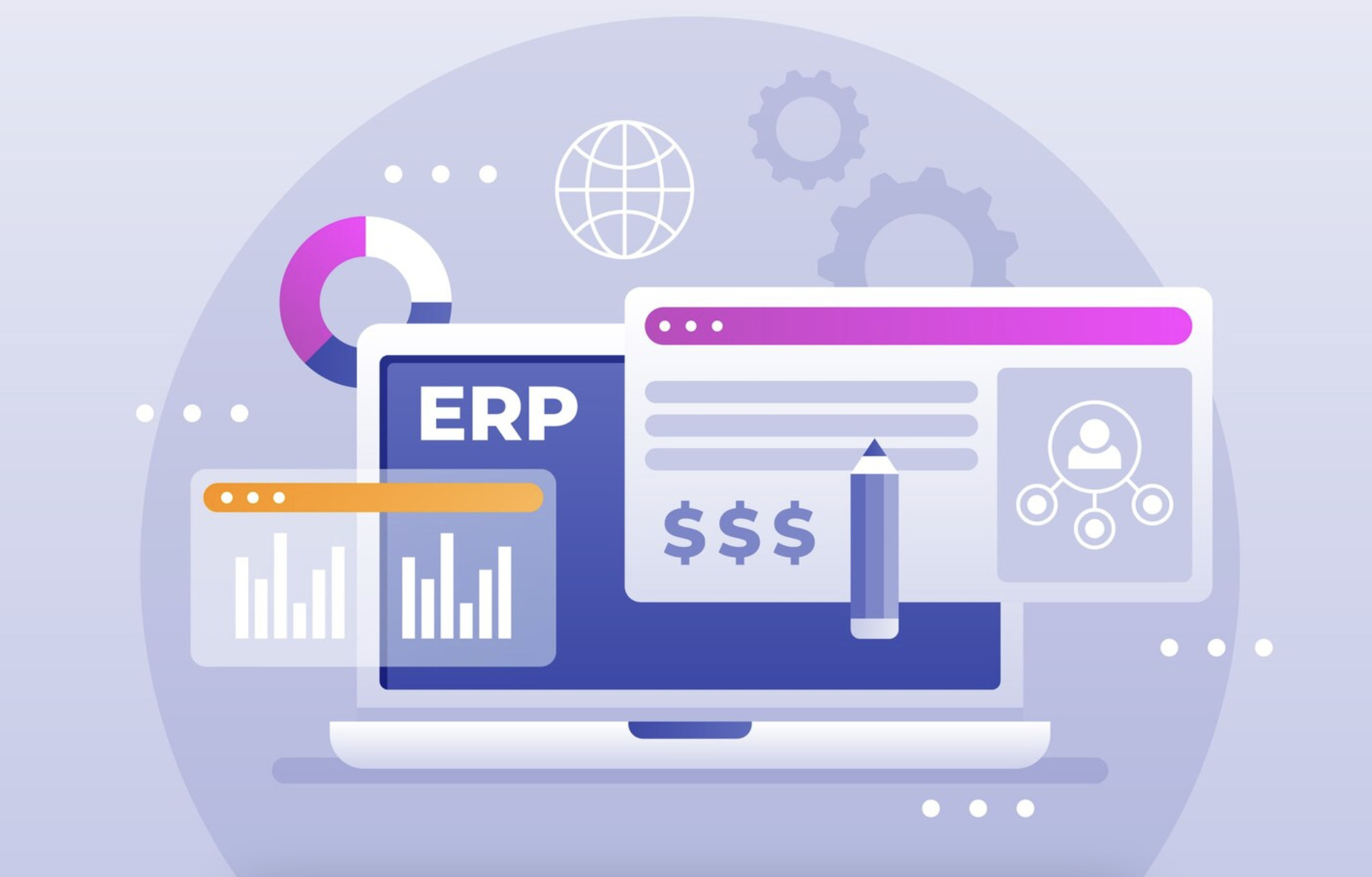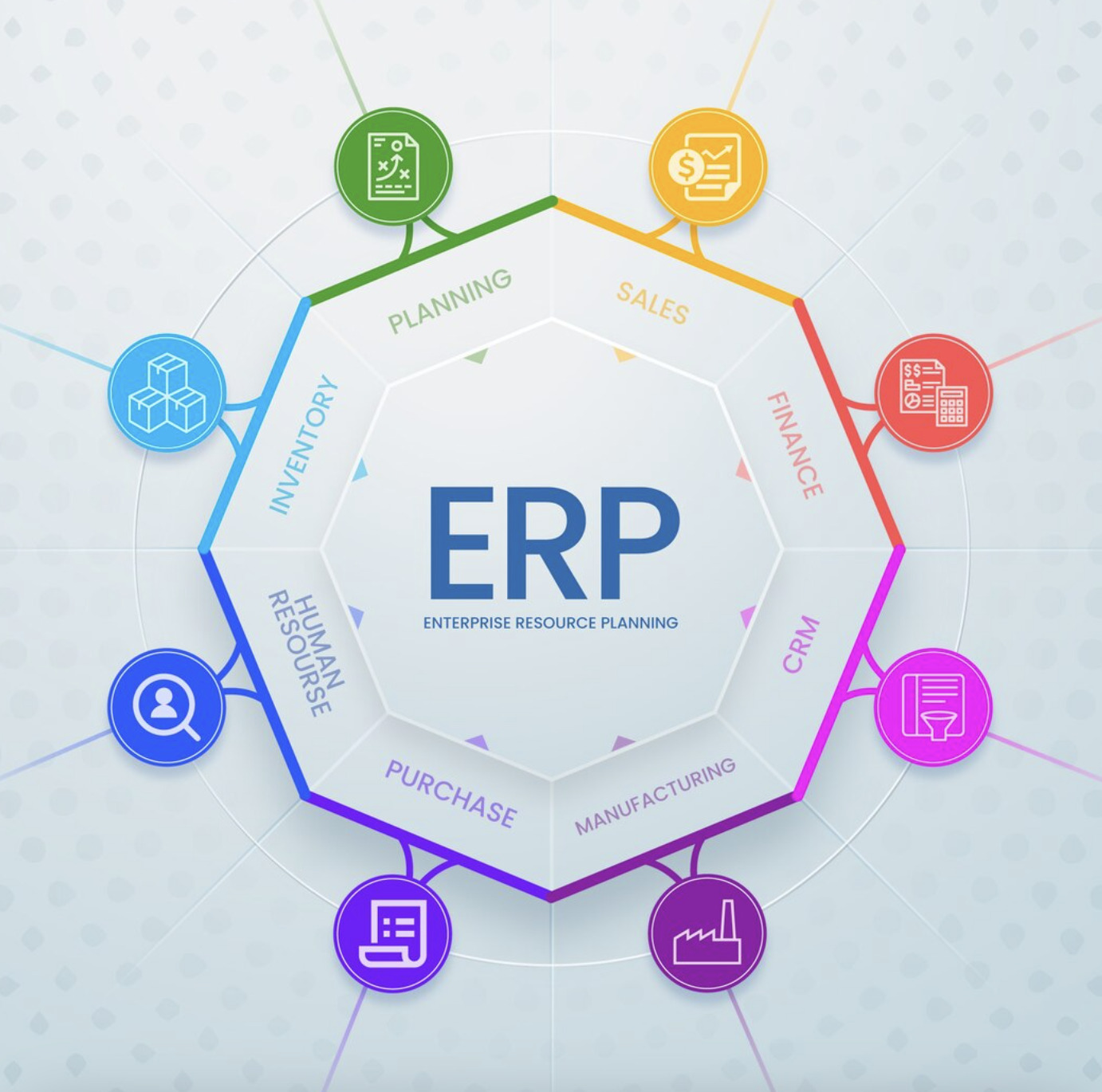Strategies for a correct implementation of an ERP system
December 28, 2023
Table of contents
Quick Access

Currently, companies are immersed in a highly dynamic and competitive environment, where operational efficiency and informed decision making are essential for success. In this context, more and more companies are looking for support in Enterprise Resource Planning Systems (ERP) as a comprehensive solution to improve the management of their departments and business processes.
These ERP systems offer a unified platform that ranges from resource planning and financial management to logistics and human resources. By taking advantage of the capabilities of an ERP system, companies seek to optimize visibility and control over their operations, facilitating more agile and accurate decision making.
Additionally, real-time data integration and automation of redundant processes enable greater efficiency, freeing up resources for strategic approaches and fostering adaptability to the challenges of the changing business landscape.
However, adopting an ERP system can be a complex and challenging process if not approached strategically. Here we will explore some essential strategies to ensure a successful implementation of an ERP system.
Strategies for an effective implementation of an ERP system in your company
1. Comprehensive planning
Planning is the foundation of any successful project, and the implementation of an ERP system is no exception. Before starting the process, it is crucial to conduct a detailed analysis of business requirements, identify areas that will benefit from the system, and set clear and achievable goals. Planning should include a realistic timeline that allows teams to adequately prepare and minimizes disruption to daily operations.
“In the technological context, ERP technology strategies include a well-defined technical implementation plan, an acceptable technical infrastructure, efficient data conversion and customization of the software package”, they noted in a study done at Walden University.
2. Analysis of IT infrastructure
“An adequate IT infrastructure is the most important strategy to successfully implement an ERP system (...) IT infrastructure drives performance and supports the complexities of an ERP system”, they emphasized in the same research that we cited a few moments ago.

3. Commitment of senior management
Leadership from the top is essential to the success of ERP system implementation. Senior management must fully support and commit to the project, communicating the strategic importance of the system to all levels of the organization. This commitment not only provides the necessary resources, but also sets a positive tone and encourages collaboration between teams.
“The CEO's role as an ERP advocate, mentor, and driving force to motivate the entire organization and rally teams around ERP implementation is important to ERP success”, they reinforced in this LinkedIn article.

4. Careful selection of vendor and software
Choosing the ERP vendor and software is one of the most critical decisions in the process. Before making a decision, it is essential to conduct a thorough evaluation of the solutions available on the market. Considering the specific needs of the company, the scalability of the system and the reputation of the provider is essential. Additionally, involving end users in the evaluation can provide valuable information about the usability and acceptance of the system.
5. Controlled customization
Although customization can be tempting to adapt the system to the specific needs of the company, it is important to exercise restraint. Excessive customization of an ERP system can increase costs, complicate management, and make future system upgrades difficult. Instead, critical needs should be identified and limited to customizations that provide significant value without compromising system stability and flexibility.
6. Comprehensive training
Resistance to change is a common barrier in implementing an ERP system. To overcome this challenge, it is essential to provide comprehensive training to end users. This includes not only technical training in using the system, but also understanding how the ERP system will benefit each department and improve overall operations. Ongoing training and post-implementation support are key to ensuring successful and sustained adoption.
“Including change management as part of your ERP implementation strategy will accelerate adoption and reduce risk. Add to this a well-executed training plan and you will ease the transition process for affected teams, making them more likely to adopt new processes,” they detailed in an Oracle blog.
7. Effective change management
The implementation of an ERP system involves significant changes in work processes and organizational culture. Effective change management involves transparently communicating the benefits of the new system, involving employees in the process, and proactively managing resistance to change. Creating a change management team can be beneficial in leading and supporting the transition across the organization.

8. Monitoring and continuous improvement
The implementation of an ERP system does not end with start-up. It is essential to establish a continuous monitoring process to evaluate system performance, identify areas for improvement, and ensure that the ERP system evolves along with the changing needs of the business. User feedback, key performance metrics, and regular audits are valuable tools for this purpose.
The successful implementation of an ERP system requires a comprehensive strategy that ranges from initial planning to continuous improvement. By adopting these strategies, companies can maximize the benefits of an ERP system, improve their operational efficiency, and stay competitive in a constantly evolving business environment.
Do you need support in implementing an ERP system in your business? At Rootstack, we have +13 years of experience supporting companies in their digital transformation. Contact us!
We recommend you this video
Related Blogs
-1.17.37-p.m.png)
We look at how AWS tools help you optimize costs
-10.38.35-a.m.png)
The basics of cloud computing
-9.19.54-a.m.png)
How IT outsourcing services can unlock your project in the retail industry
-5.03.33-p.m.png)
How to explain your project requirements to external mobile app developers
-2.51.54-p.m.png)
Scenarios in which companies should develop custom software
-11.27.07-a.m.png)
